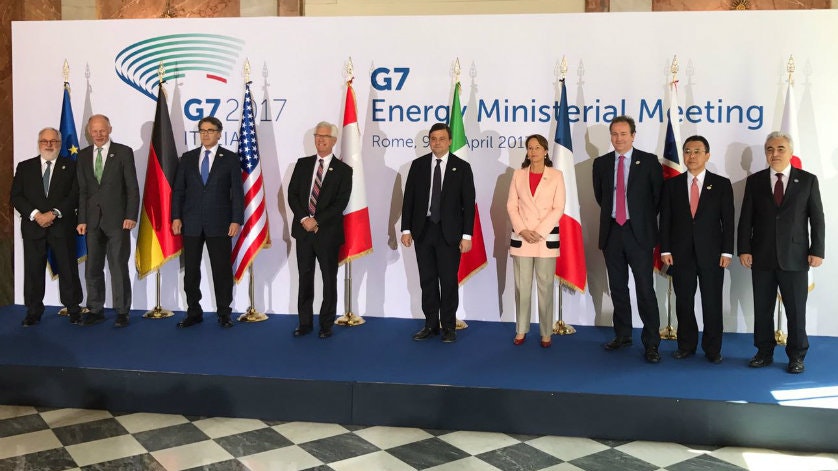IEA joins meeting of G7 Energy Ministers in Rome

G7 heads of delegation, from left: Mr Miguel Arias Cañete, EU; Mr Rainer Baake, Germany; Mr Rick Perry, USA; Mr Jim Carr, Canada; Mr Carlo Calenda, Italy; Ms Segolene Royal, France; Mr Nick Hurd, UK; Mr Yosuke Tagaki, Japan; Dr Fatih Birol, IEA (Photo: IE